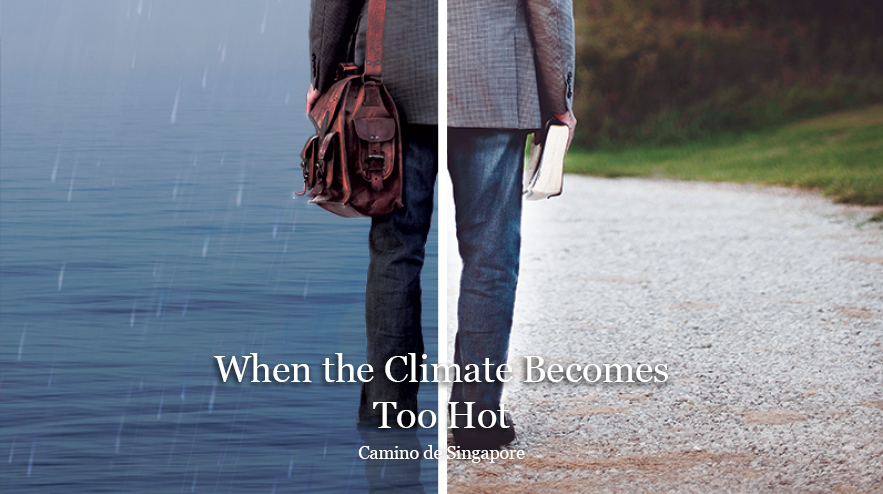No products in the cart.
I remember when I was a kid, I loved to play at the playground below my flat. Back then the weather was good, and I could spend hours playing and enjoying the cool breeze that brushed against my face. Today, I am no longer that little kid who played at the playground but I still enjoy outdoor activities very much. Unfortunately, I have not been able to do a lot of outdoor activities for more than a decade. It has become unbearable for me to be under the scorching sun for more than five minutes. Comparing between the playground scene twenty or thirty years ago and how it is now, it is so different. Fewer children are seen playing outdoors.
Nowadays, the only time I can bring myself to do any outdoor activity would be on some cooler evenings where I can go cycling, jogging, or take a long walk. On such evenings, I would notice that more and more people go to the park to exercise, or visit the beach to cycle, or do a range of other outdoor activities. Perhaps increasingly more people feel the need to get out for a breather due to the COVID-19 restrictions. But how long can this last? Will the day come when there are no cool evenings during which we can go out for a breather because of the ever-rising heat? What is going to unfold for the future generations given that global warming is accelerating?
In the recent Intergovernmental Panel on Climate Change (IPCC) report released this month, it indicates that human beings are the cause of our rapidly changing climate, and that this is adversely affecting the planet. The warmer climate is just one of many consequences. Reading the report gives off the feeling of doom and gloom. How many more people will be displaced and forced to leave their homes because of the rising sea level? How many more people are going to lose their livelihoods due to depleting livestock, marine life and agriculture due to more frequent flooding, drought, and other disasters?
God has given us a beautiful and bountiful world to live in. But we have scarred this gift and damaged ecosystems until they no longer have the capacity to regenerate. But there is hope! We are the cause of the problem but we are also the ones who can rectify it. For a start, we need to change our lifestyles and cut the amount of waste we produce. God will not reward us for how much we have but how much we have done for others. Therefore, let us practise the Catholic Social Teaching in respecting the dignity of creation and become better stewards of the earth.
There are many resources available for us to find out more and I invite you to think more deeply about this great challenge of our time. If you want to know how to make a change as a parish community, keep a lookout for the upcoming Climate Action Conference organised by the Church of St Ignatius in collaboration with Caritas Singapore on 6 November 2021. You can also click here to find out how you can reduce your carbon footprint. Let us do our part!
Related News
- Singapore studies UN’s latest climate change report as it continues to plan and implement adaptation measures (Channel NewsAsia, 9 August 2021)
- Commentary: Latest climate change report is the most important by far. Here’s why (Channel NewsAsia, 10 August 2021)
- Free programme to help S’pore employees adopt sustainable practices in the workplace (The Straits Times, 5 August 2021)
Eve Ong is part of the Parish Engagement Team at Caritas Singapore. She is a strong advocate of the environment, and she has great love for God and His creation, especially the most vulnerable. She enjoys good coffee and meaningful films.

